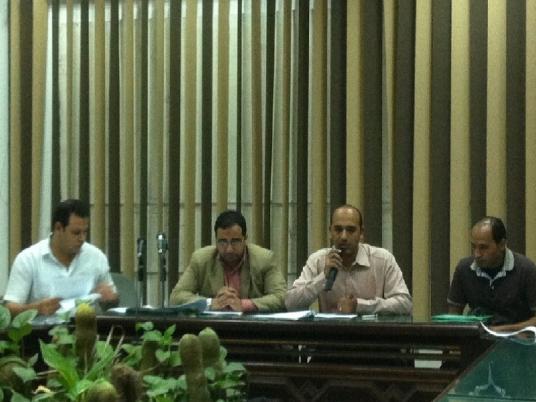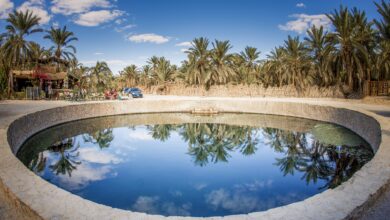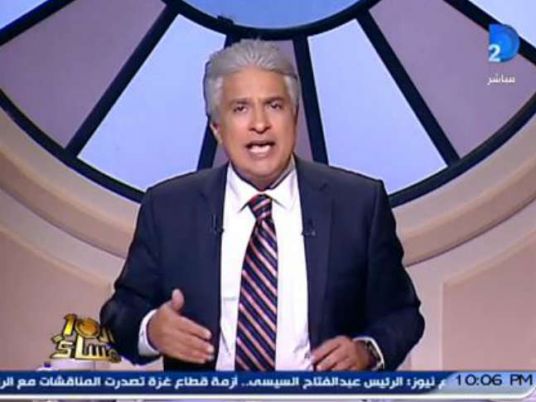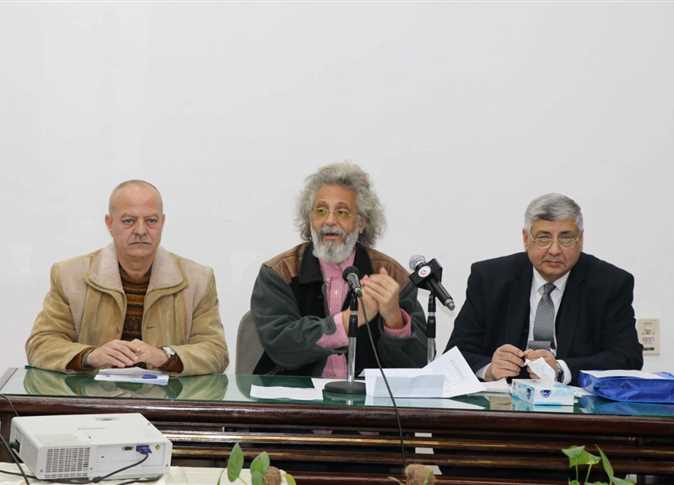
The Doctors Syndicate is looking forward to extra security after President Mohamed Morsy last week ordered military police to secure the 100 hospitals most in need of extra protection, the organization announced at a news conference Saturday.
“All we want is to feel safe while doing our job as doctors,” said Dr. Abdel Rahman Gamal, a member of the Doctors Syndicate at the conference, which took place at Dar al-Hekma. “We look forward to having special policemen to secure hospitals, just like the tourism police.”
A group of four doctors held the conference to express the medical syndicate’s opinion on Morsy’s decision. The president said military police should coordinate with the Doctors Syndicate to determine which 100 hospitals would be secured.
Dr. Ahmed Lotfy, a member of the syndicate, began the conference by stressing that since the presidential election, securing hospitals had been the least important priority for the military, and since that time there have been many chaotic events.
“The syndicate sent the Supreme Council of the Armed Forces a letter to send their forces to secure the hospitals once more, and they replied, asking us to address the issue to the Interior Ministry, and by the time that the ministry replied, there were severe attacks on the Demerdash and the Qasr al-Aini hospitals,” Lotfy told Egypt Independent.
He said Qasr al-Aini Hospital had closed its reception as a consequence of the attacks by the families of injured people who were not happy with the quality of the service at the hospital.
Meanwhile, Abdel Fattah Rizk, general secretary of the syndicate, offered his support to any hospital that would decide to strike as a result of any attack.
“We began a sit in inside the syndicate on 15 July 2012, as we felt that there was complete negligence of our basic demands, and after two days the president decided to secure the 100 hospitals most in need for security,” said syndicate member Dr. Abdallah al-Karyouny.
The Doctors Syndicate said in a statement that wished to protect and secure hospitals not only in the short term, but as a long-term project, which necessitates the existence of police for health institutions.
The syndicate members said the main reason for the attacks was the dissatisfaction of patients’ families with the service offered in hospitals.
“The health budget is 4.7 percent of the overall state budget, but, based on global standards, the health budget should be about 15 percent of the total. This is the main reason for the dissatisfaction of the patients and their families, and I believe that this necessitates that the president and the [SCAF] act to increase this ratio,” Gamal said.
Although the news conference showed that the syndicate is not completely satisfied with the president’s decision, the general secretary had a different reaction.
“Practically speaking, I feel that this is a very wise decision. To decide to protect 100 hospitals immediately satisfies me,” Rizk told Egypt Independent.
He said he wanted to see guards in front of hospitals, electronic gates and cameras, and supervisory personnel.
At the end of the conference, Lotfy said the syndicate had written to its branches across the country to determine which hospitals most needed the security assistance.
He said those hospitals include Demerdash in Cairo, Badrasheen in Giza, Assiut Public Hospital, Arish Public Hospital in North Sinai, and Suez Public Hospital.




